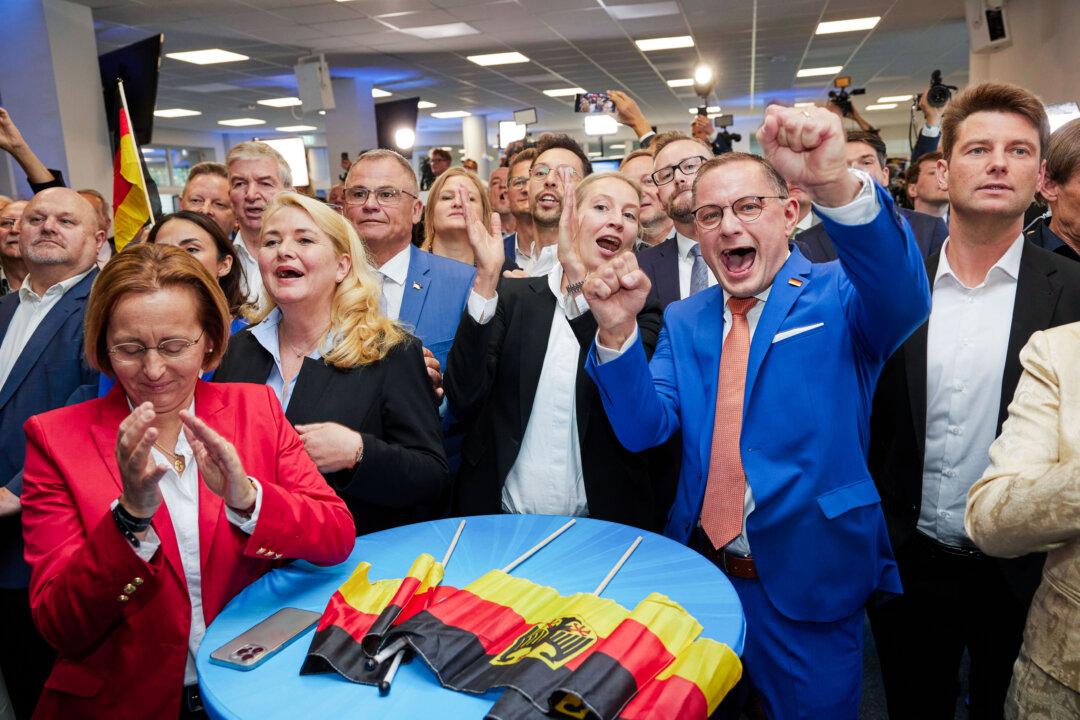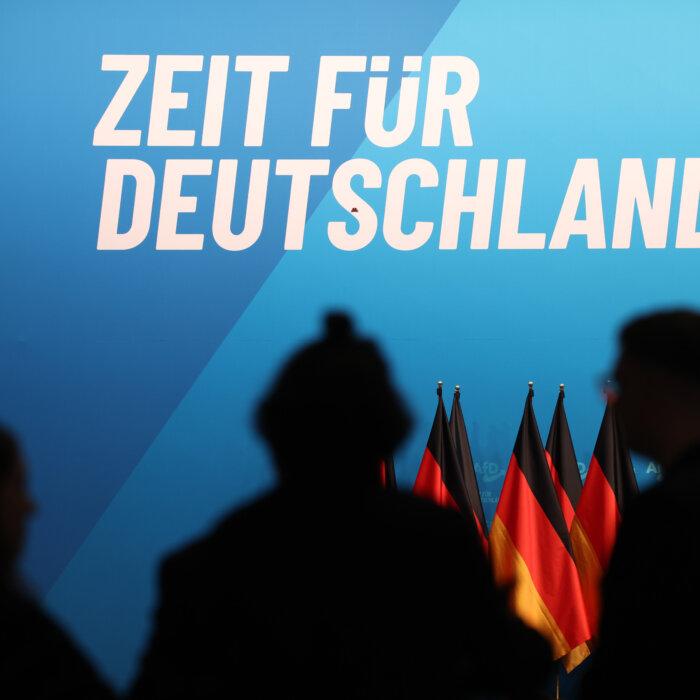Germany’s domestic spy agency will temporarily refrain from classifying the Alternative for Germany party (AfD) as an “extremist” organization.
“This is an important first step toward actually exonerating us and thus countering the accusation of right-wing extremism.”
Such a designation subjects the party, which came second in the national elections in February, to greater surveillance from state authorities, meaning government officials can use informants and other tools such as audio and video recordings to monitor the party’s activities across Germany.
It had compiled a 1,100-page experts’ report on the subject that it says will not be released to the public.
It said that AfD’s approach to ethnicity is “not compatible with the free democratic basic order” and that the party does not consider German nationals with a migration background from Muslim-origin countries as equal members of the German people.
Stephan Brandner, AfD’s deputy federal spokesman, told The Epoch Times that the classification was “absurd.”
Brandner said that this has “nothing to do with law and order and is a purely political in the fight of the cartel parties against the AfD.”
Among its members was Alexander Dobrindt, a CSU politician from the Bavarian sister party of Merz’s CDU, who took office as federal minister of the interior, meaning the BfV now falls under his ministry’s authority.
This included plans “to safeguard the independence of the Federal Constitutional Court more strongly against the influence of anti-democratic forces.”
“Those who ridicule the government must be met with a strong government in return,” she said. “When it comes to right-wing extremists, we must leave no stone unturned.”
Merz is in a coalition with the SDP, which signaled that it wanted to ban the party.
“It is clear to me that the ban must come,” she stated.
On May 4, Dobrindt said it was unlikely the AfD party would be banned.
“I’m skeptical, because the aggressive, combative nature of the party against our democracy must be a defining characteristic. The Constitutional Court was right to set high hurdles for banning a party,” Dobrindt said.
“[I am] convinced that the AfD does not need to be banned; it needs to be governed away, and we need to talk about the issues that have made the AfD so big.”







